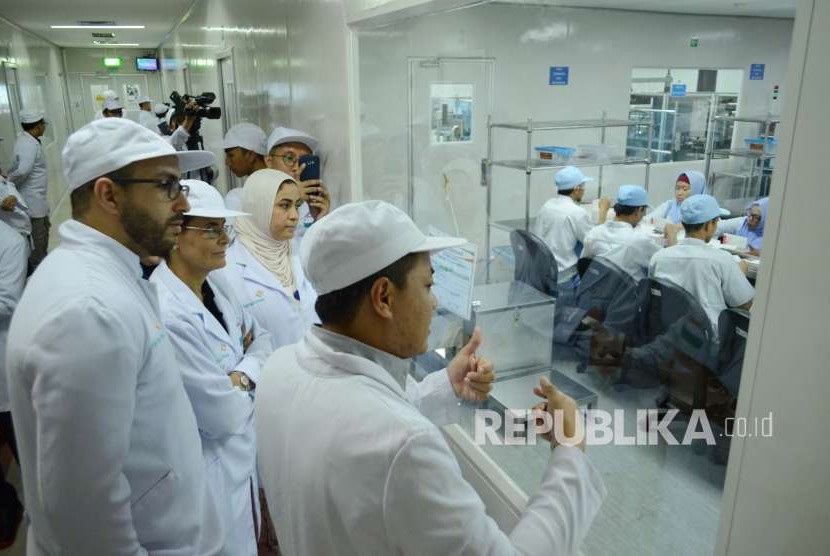REPUBLIKA.CO.ID, JAKARTA — Indonesia was keen to help countries member of Organization of Islamic Cooperation (OIC) to develop vaccines. Among other of OIC members, only vaccine produced by Indonesia that has been recognized by the World Health Organization (WHO).
In addition, state pharmaceutical company Bio Farma has also been appointed as the Center for Excellence in Vaccine Products and Bio Technology or the Center of Excellence on Vaccine and Bio-technology Product. OIC member countries were invited to learn how to produce vaccines from Indonesia.
“OIC member, such as Morocco and Tunisia come here to learn how to produce vaccines from Indonesia, we are happy to be able to share," said Bio Farma president director, M Rahman Roestan on Monday (August 27).
He added, Bio Farma has also signed a partnership with Saudi Arabia. According to Rahman, the cooperation is to transfer technology to meet the needs of vaccines.
“Our coopertion is to transfer technology to meet the needs of vaccines, not only in Saudi Arabia but also in Gulf countries," Rahman explained.
Furthermore, Rahman said from 57 new OIC members, only seven which already have vaccine factories. However, only Indonesia that has the recognition from WHO. He added, vaccines from Indonesia have been used in more than 130 countries and as many as 49 of them are OIC countries.
"So we will help OIC member countries to produce basic immunization vaccines such as polio, measles, tetanus, and others. We hope later those countries will be able to meet their vaccine needs independently,” Rahman explained.
National Development Planning Minister and also Head of the National Development Planning Agency (Bappenas) Bambang Brodjonegoro also said that the Indonesian Government and Islamic Development Bank (IsDB) had adopted the Member Country Partnership Strategy (MCPS) 2016-2020 as means of establishing cooperation between IsDB and Indonesia as the member. One of the main pillars of support for implementing MCPS is the Reverse Linkages program, namely development cooperation activities facilitated by ISDB.
“So, the member countries become participants and directly become representatives, in sharing their expertise, knowledge, investment experience, successful experience, best practices. The aim is to overcome development constraints by taking advantage of opportunities that are very rare in other ISDB countries in the synergy mutually beneficial,” Bambang said.
Bambang said on December 27, 2017 Memorandum of Understanding (MoU) to implement the Reverse Linkages program has been signed. So, Indonesia agreed to be involved in 13 fields of cooperation.


